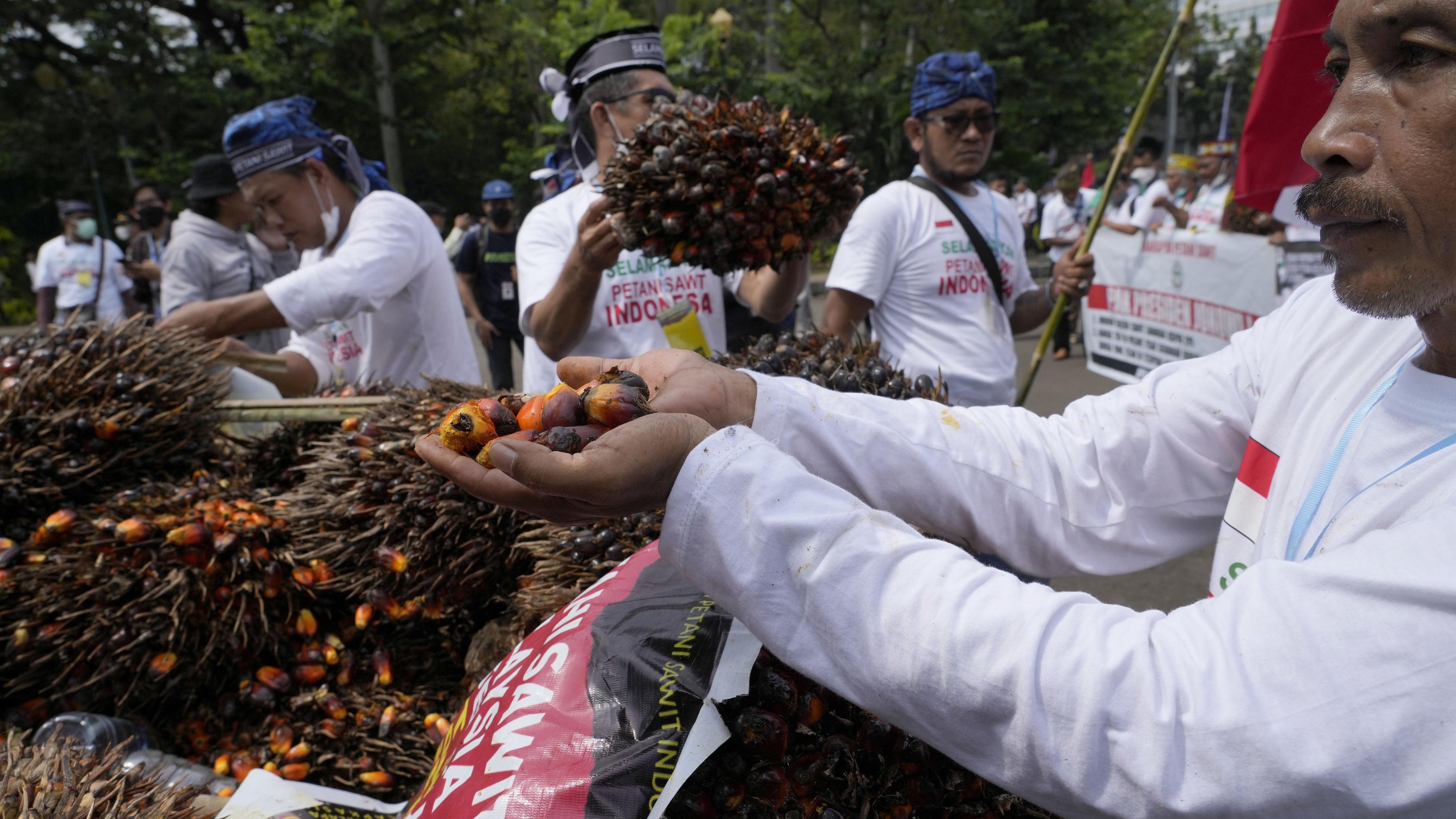 In this file photo dated May 17, 2022, farmers display oil palm fruits during a protest near the presidential palace in Jakarta, Indonesia. (PHOTO / AP)
In this file photo dated May 17, 2022, farmers display oil palm fruits during a protest near the presidential palace in Jakarta, Indonesia. (PHOTO / AP)
JAKARTA - Indonesia has requested World Trade Organization dispute consultations with the European Union regarding the bloc's imposition of duties on imports of biodiesel from the Southeast Asia nation, the global trade body said on Tuesday.
The EU is Indonesia's third-largest destination for palm oil products and is an important market for its biodiesel, a product made from palm oil. Indonesia is the world's biggest palm oil producer.
The request was circulated to WTO members on Aug 15, the body said, adding that Indonesia argues that the EU countervailing duties and the investigation that led to their imposition are inconsistent with WTO provisions.
The EU has imposed countervailing duties of between 8 percent and 18 percent for Indonesian biodiesel since 2019, according to Djatmiko Bris Witjaksono, director-general of international trade cooperations at Indonesia's trade ministry.
ALSO READ: Indonesia files lawsuit against EU at WTO over palm oil
 A logo of the World Trade Organization (WTO) is seen in Geneva, Switzerland, on April 5, 2023. (PHOTO / XINHUA)
A logo of the World Trade Organization (WTO) is seen in Geneva, Switzerland, on April 5, 2023. (PHOTO / XINHUA)
"The imposition of the import duties has caused serious damage to Indonesian industry, especially when the global economy has only started to recover from the COVID-19 pandemic," Djatmiko said on Wednesday.
Countervailing duties are imposed under WTO rules with the goal of neutralizing the negative effects of subsidies.
Indonesia's total biodiesel exports dropped 28 percent in 2019 from a year earlier, to 1.2 million tonnes according to its statistics bureau.
The EU accounted for about 52 percent of its 2018 biodiesel shipments and 45 percent in 2019.
READ MORE: Indonesia, Malaysia rebuff EU plan to phase out palm oil
Indonesia shipped 435,827 tonnes of biodiesel in 2022, with 22.47 percent of that shipped to the EU.


